eiCOMPASS SPRINT COLLABORATIVE HUB
FOR SPRINT TEAMS
FOR SPRINT TEAMS
(Competency Framework and Self-Assessments)
A national standard for palliative care competencies; outlining core skills, knowledge, and attitudes for five healthcare disciplines (nurses, personal support workers, physicians, social workers, and volunteers).
Identify knowledge gaps within your frontline team across the domains of the Palliative Care Competency Framework. This guide includes:
1. Self-Assessments: Easy-to-use Microsoft Forms tailored for nurses and personal support workers to evaluate each palliative care domain outlined in the Competency Framework.
2. Step-by-Step Guide: Clear instructions on how to duplicate, distribute, and collect responses from frontline workers.
3. Response Spreadsheet: An Excel file consolidating collected responses for analyzing results and identifying knowledge gaps.
Testimonials from Subject Matter Experts on the value of the Competency Framework for education, quality improvement, standardization, and patient care.
(Skills, Knowledge, Attitude)
This curated list features resources tailored to address specific learning needs within each palliative care domain, ensuring comprehensive and practical support for continued skill development.
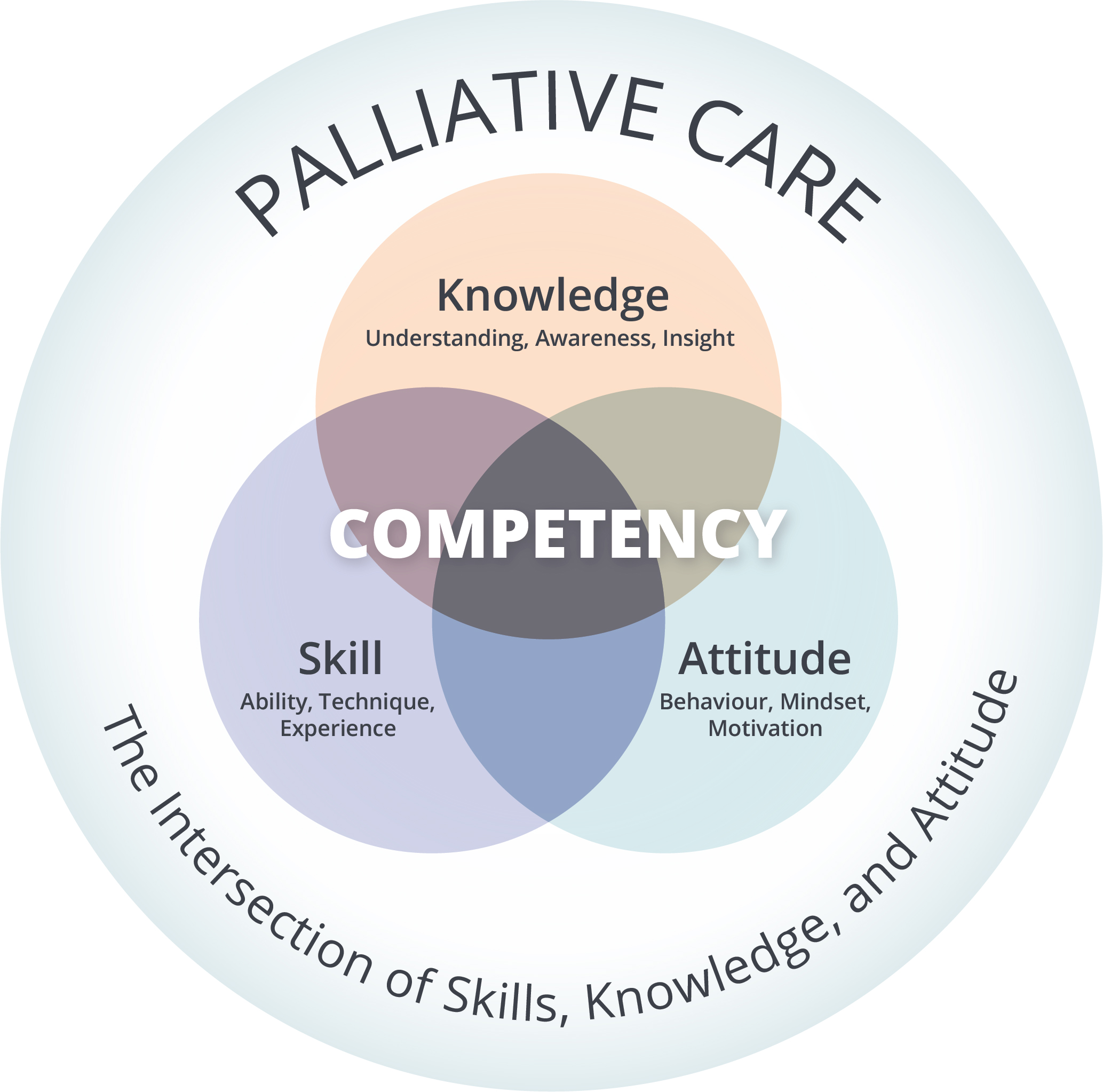
These guides support home care providers in facilitating clear and empathetic conversations, helping families confidently manage emergencies while awaiting professional support.
Each guide includes:
1. Conversation Checklist: Tips and approaches for addressing challenging conversations.
2. Clinical Information: Signs, symptoms, risk factors, and care strategies for safe home management.
3.Caregiver Tool: Techniques, advice, and guidance in handling emergencies.
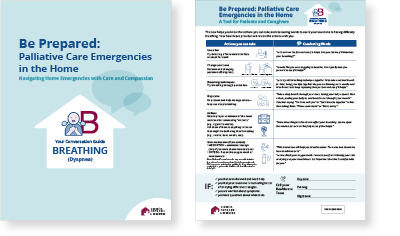
For convenience, all six guides are accessible for frontline staff under Enhancing Competency: Managing Emergencies with Compassion
Need Help Using the Guides?
Watch this explainer video that details how and when the guides can be used.
Led by Nadine Valk, Integral Professional Coach™ and palliative care expert, each session equips healthcare providers with techniques and practical tools to build emotional resilience, enhance communication, and deliver compassionate, patient-centered care.
Navigating Your River of Well-Being
Communication Readiness: Reframing Difficult Conversations
Adapting Communication for Kids: Talking About Illness and Loss
Communication and Shared Decision-Making
Attending to Grief and Loss: Empathy in Action
Mar 19, 2025, 12:00 PM–1:00 PM ET
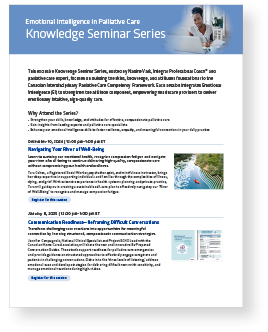
Download the Knowledge Seminar Flyer For promotion of the knowledge seminars and distribution amongst the front-line team.
For convenient access and registration, staff can find all resources directly under Enhancing Competency Knowledge Seminar Series
EI Microlearning Course Overview—A backgrounder detailing the CHCA EI Training Courses, their intended use, and information on the specific course content.
Accessing the Courses—A one-page instruction sheet designed to guide staff in accessing the online EI courses.
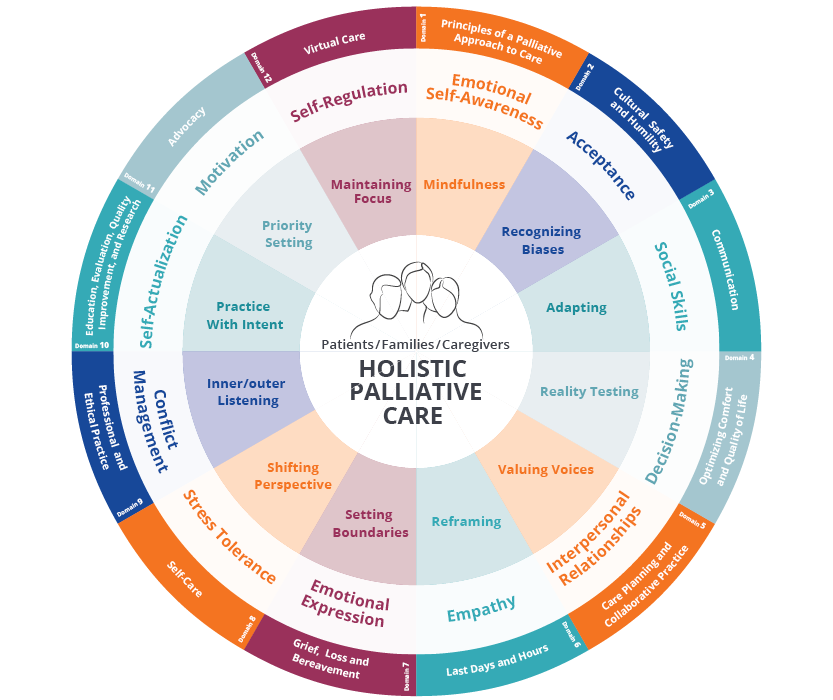
The toolkits are comprised of 3 parts:
1. Practice Aid: 1 page resource with simple prompts, memory keys, and realistic examples for practical use of EI skills and behaviours.
2. Group Activity: 10-15-minute content PowerPoint slides and facilitator notes with core EI content, exercises, and reflections to reinforce EI skills and behaviours in group learning settings.
3. Everyday EI Tips: 6 brief facts and practical information, formats include text and image files to be used in daily communications (e-mails), newsletters, staff notice boards or included in meetings as quick reminders to use EI skills.
Emotional Self Awareness and Mindfulness (package)
Social Skills and Adapting Communication (package)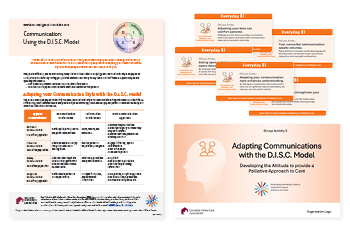
Decision-Making and Reality Testing (package)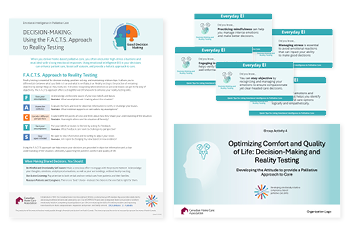
Interpersonal Relationships and Valuing Voices (package)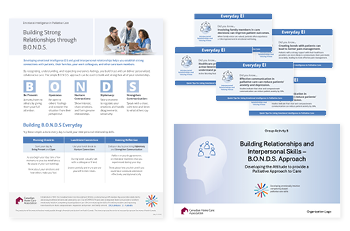
Empathy and Reframing (package)
Stress Tolerance and Shifting Your Perspective (package)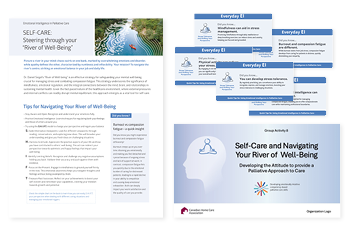
An overview of the Model for Improvement used in the SPRINT Collaborative, covering goal setting, measurement, the Plan-Do-Study-Act (PDSA) testing method, and implementation, along with key distinctions between testing for improvement, evaluation, and research.
COM-B Model for Behaviour Change
A summary of the COM-B model for behaviour change, outlining potential change ideas that teams can explore through the lenses of Capabilities, Opportunity, and Motivation.
Strategies to Address Barriers and Facilitators to Change
Strategies designed to identify and overcome barriers, while enhancing facilitators, to effectively implement change. Slides and facilitator notes from Dr. Julia Moore’s presentation on the COM-B model, as part of Virtual Learning Session #4, scheduled for Feb 28, 2024.